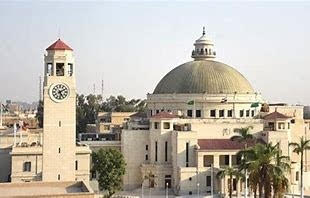As Beijing celebrated the 60th anniversary of the People’s Republic on October 1, it is worthwhile to look at China objectively, to see what has enabled it to change within one generation from a poverty-stricken country to one of the world’s largest economies.
Critics of China like to claim that despite its economic success, the country has no “big ideas” to offer. But to this author, it is precisely big ideas that have shaped China’s dramatic rise. Here are eight such ideas:
1. Seeking truth from facts. This is an ancient Chinese concept, as well as the credo of the late Deng Xiaoping, who believed that facts rather than ideological dogmas — whether from East or West — should serve as the ultimate criterion for identifying truth. Beijing concluded from examining facts that neither the Soviet Communist model nor the Western democracy model really worked for a developing country in terms of achieving modernization, and that democratization usually follows modernization rather than precedes it. Hence Beijing decided in 1978 to explore its own path of development and to adopt a pragmatic, trial-and-error approach for its massive modernization program.
2. Primacy of people’s livelihood. Beijing has embraced this old Chinese governance concept by highlighting poverty eradication as the most fundamental human right. This idea has paved way for China’s enormous success in lifting nearly 400 million individuals out of abject poverty within one generation, an unprecedented success in human history.
China has arguably corrected a historical neglect in the range of human rights advocated by the West, which since the Enlightenment have focused almost exclusively on civil and political rights. This idea may have lasting implications for the world’s poor.
3. The importance of holistic thinking. Influenced by its philosophical tradition, China has pursued a holistic strategy for modernization from the early 1980s to this day. This has enabled Beijing to establish a clear pattern of priorities and sequences at different stages of transformation, with easy reforms usually followed by more determined and difficult reforms — in contrast to the populist, short-term politics so prevalent in much of the world today.
4. Government as a necessary virtue. In China’s long history, prosperous times were all associated with an enlightened, strong state. Contrary to the American view of state as a necessary evil, China’s transformation has been led by an enlightened developmental state. And contrary to Mikhail Gorbachev, who abandoned his old state and then found his empire shattered, Deng Xiaoping reoriented China’s old state from pursuing the Maoist utopia to promoting modernization.
The Chinese state, however flawed, is capable of shaping national consensus on modernization and pursuing hard strategic objectives, such as enforcing banking sector reforms, developing renewable energies and stimulating China’s economy against the global downturn.
5. Good governance matters more than democratization. China rejects the stereotypical dichotomy of democracy vs. autocracy and holds that the nature of a state, including its legitimacy, has to be defined by its substance, i.e. by good governance, and tested by what it can deliver.
Notwithstanding its deficiencies in transparency and legal institutions, the Chinese state has presided over the world’s fastest growing economy, vastly improved living standards for its people. Seventy six percent of Chinese surveyed in 2008 felt optimistic about their future, topping the 17 major countries surveyed by Pew, a Washington-based research center.
6. Performance legitimacy. Inspired by the Confucian tradition of meritocracy, Beijing practices, though not always successfully, performance legitimacy across the whole political stratum. Criteria such as performance in poverty eradication and, increasingly, cleaner environment are key factors in the promotion of officials. China’s leaders are competent, sophisticated and well-tested at different levels of responsibility.
7. Selective learning and adaptation. China represents a secular culture where learning from others is prized. The Chinese have developed a remarkable capacity for selective learning and adaptation to new challenges, as shown by how quickly China has embraced the IT revolution and then excelled in it.
8. Harmony in diversity. Beijing has revived this old Confucian ideal for a large and complex society. Rejecting Western-style adversary politics, Beijing has worked hard to emphasize commonality of different group interests, to defuse social tensions associated with rapid change and to establish as fast as it can a social safety net for all.
China is still faced with serious challenges such as fighting corruption and reducing regional gaps. But China is likely to continue to evolve on the basis of these ideas, rather than by embracing Western liberal democracy, because these ideas have apparently worked and have blended reasonably well with common sense and China’s unique political culture, the product of several millenia — including 20 or so dynasties, seven of which lasted longer than the whole of U.S. history.
While China will continue to learn from the West for its own benefit, it may be time now for the West, to use Deng’s famous phrase, to “emancipate the mind” and learn a bit more about or even from China’s big ideas, however extraneous they may appear, for its own benefit.
This is not only to avoid further ideology-driven misreading of this hugely important nation, a civilization in itself, but also to enrich the world’s collective wisdom in tackling challenges ranging from poverty eradication to climate change and the clash of civilizations.
__________________________________________________________________
Zhang Wei-Wei is a professor at the Geneva School of Diplomacy and International Relations and visiting professor at Tsinghua and Fudan Universities in China. He was a senior English interpreter for Deng Xiaoping and other Chinese leaders in the mid-1980s. The New York Times











